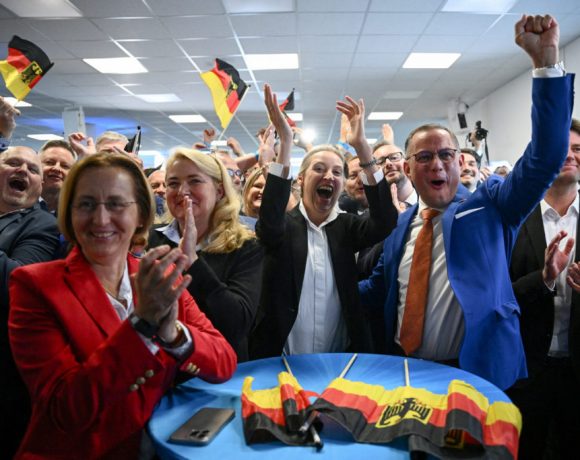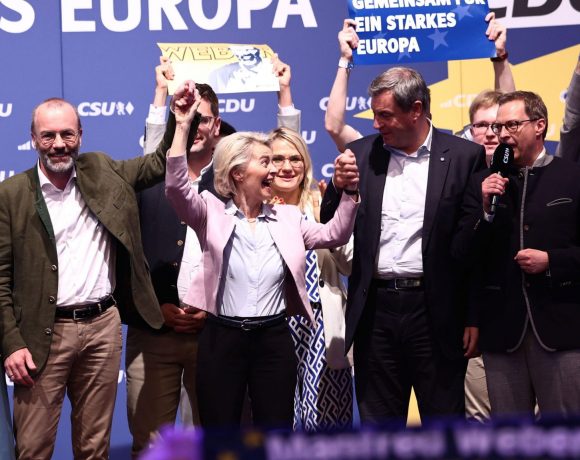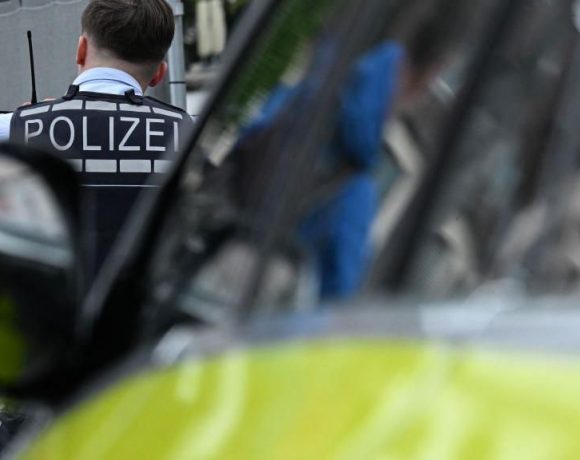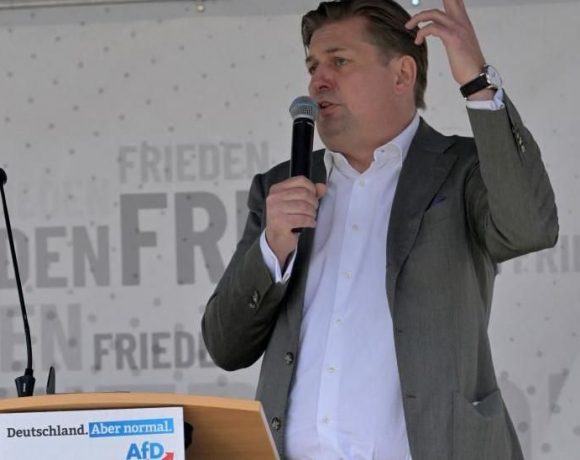
Alice Weidel, leader of Germany’s far-right Alternative for Germany (AfD), expressed on Monday that there is a growing demand for a vote of confidence and new elections, stating that the public is frustrated. The AfD is celebrating their unexpected success in the European Parliament elections, where they secured 16%, surpassing Chancellor Olaf Scholz’s centre-left SPD.
Despite facing numerous scandals, including allegations of money laundering, connections to the Kremlin, and espionage for China, the AfD’s campaign managed to perform well. Their two lead candidates, Maximilian Krah and Petr Bystron, were sidelined due to investigations into these allegations, with Krah further tarnishing the party’s image by downplaying Nazi crimes. Consequently, France’s hard-right leader Marine Le Pen distanced herself from the AfD.
In an effort to rehabilitate the party’s image, Weidel has excluded Krah from the AfD’s EU delegation. The party attributes the scandals to a “media campaign” and criticizes the judiciary and intelligence services for being politically biased. This narrative of victimization seems to have resonated with voters.
The AfD’s effective use of social media and direct slogans contrasted with the government’s more abstract campaign messaging about “defending democracy.” Co-leader Tino Chrupalla emphasized addressing real issues over engaging in mutual insults, which appeared to appeal to the electorate, especially in eastern Germany and among younger voters.
Meanwhile, the governing coalition is grappling with the poor election results, described as a “painful humiliation” by an SPD leader. Although the conservatives led with 30%, their performance was not seen as particularly strong given the government’s unpopularity. In eastern Germany, the AfD outperformed them, and the results complicate the formation of a stable coalition in the national parliament.
This outcome bolsters CDU leader Friedrich Merz’s efforts to steer his party towards a more conservative stance and supports his ambition to become Germany’s next chancellor. However, the real beneficiaries of the election are the populists.
Picture Courtesy: Google/images are subject to copyright




